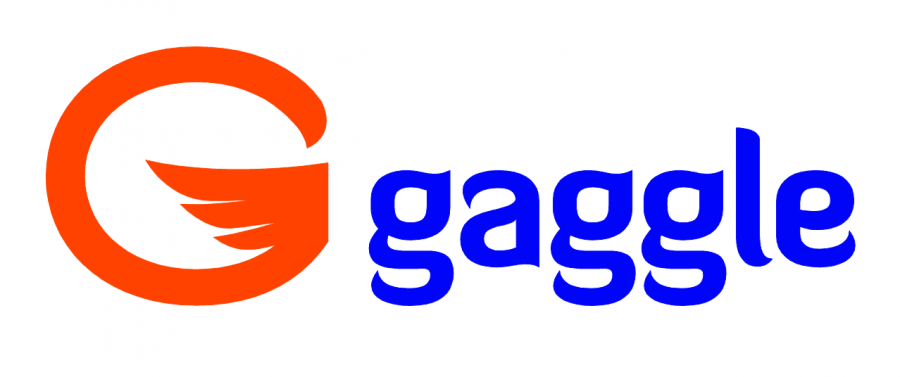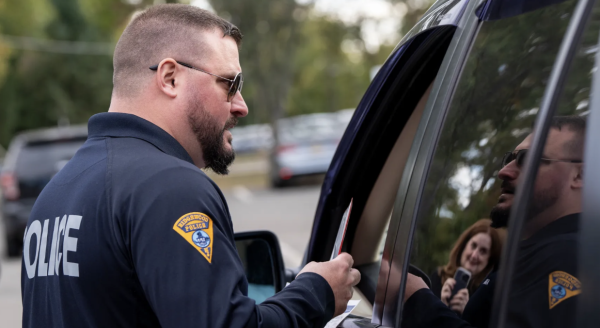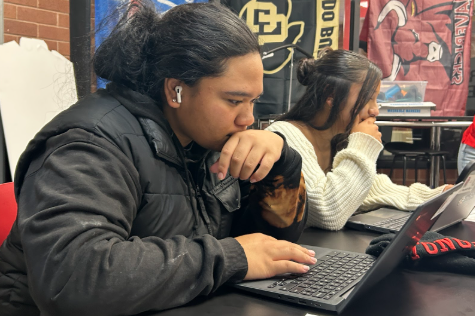Connecting with Gaggle
November 18, 2019
On November 4th, Rangeview implemented a cyber network program called Gaggle that essentially searches conversations and app activities of any phones or devices connected to APS District’s WiFi network logged into the APS Google emails. By scanning its parties’ activity, it alerts, flags, and notifies the system of any inappropriate behavior and then sends an email to the party that has committed it — whether it be an admin, student, or any other staff member.
The Internet provides people a platform of post freely, and some of those things can create cumulative damage towards someone. The rise in mental instability has resulted in depression, anxiety, and suicide to name a few. Gaggle provides a service that allows administration to still maintain protection with the new generation’s propositions and circumstances. Mixed responses from students leave them questioning: why is the school doing this?
Rangeview Dean of Students Terry Anderson said, “Everybody has cell phones now so there’s a lot of stuff out there in the media that needs to be paid attention to. It’s a filter for us and it makes us more aware. Social media is a dominant thing right now and if we can catch some of the issues being talked about it could potentially stop or prevent things.”
Despite preventing the possible outcomes that comes with social media and the internet, the question that must be asked is if this approach invades individual privacy.
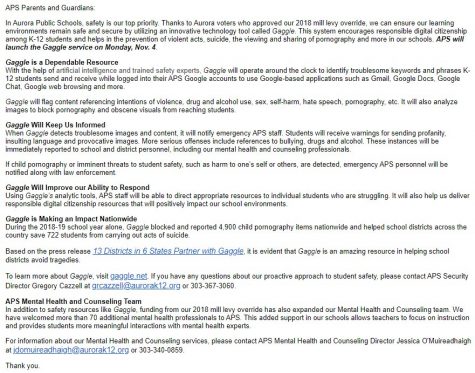
According to the Supreme Court ruling from Tinker V. Des Moines case, students “do not shed their constitutional rights to freedom of speech and expression at the schoolhouse gate.”
However, the state’s separation of power from the federal level allows them to regulate First Amendment rights of students to the extent that it isn’t “disrupting the school environment or invades the rights of others”. So long as expression does not interfere with the school’s education mission, students are able to say or express what or how they want.
According to Gaggle, the front page provides info and stats on how much Gaggle has picked up and prevented bad situations including bullying, suicide, sexual exploitation, and child pornography; however, with the knowledge that Gaggle is in effect, students are not taking it seriously.
“I think students are abusing it because they’re upset about it and I understand that because Gaggle also looks at our stuff as teachers, but if it’s something that kids are feeling desperate and someone intercepts it before they do something that’s always really good to have,” Ms. Boyd said. “It monitors anything on the APS Gmail Google suite; that’s email, Google Docs, Sheets, anything like that. The only way that Gaggle would prompt on social media is if it’s [social media accounts] being used through the email address.”
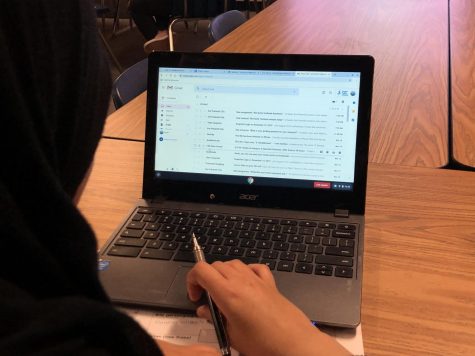
Gaggle is not bordering students’ privacy since it is protected under the notion that they are helping APS District supervise and keep up to their mission statement on school safety according to Anderson.
Junior Julia Stacks, “I don’t think it’s that effective because not that many people use Google email. People could still find ways to say stuff that wouldn’t be caught.”
Gaggle is still in its early stages but as emails get sent to those who violate the code, decline in negative activity should increase as it should also influence those to be more careful with what they’re doing.
